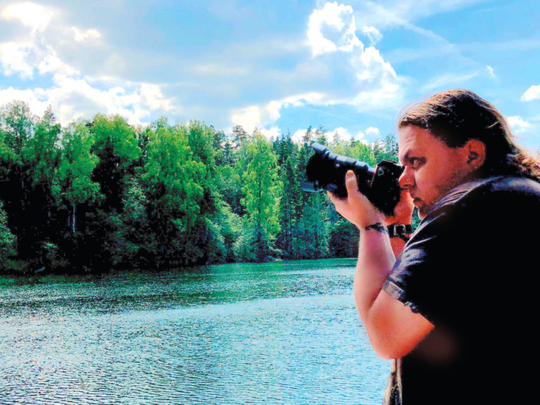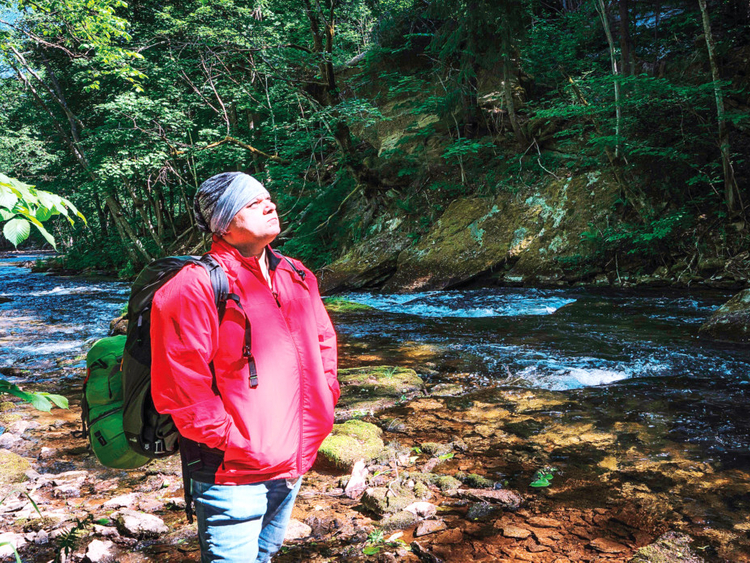
ABU DHABI: A partially blind US expat in the capital is on a solo trek in the wilderness of Estonia, traversing the 400km Oandu to Ikla trail.
Dr Brian Thornton has suffered from macular degeneration for 23 years. The condition makes it hard for him to recognise faces, drive or read as he has no vision in the centre of the visual field.
The three-week trek which started on June 3 is part of Dr Thornton’s project called Blind not Broken and combines his love for travelling, poetry and photography. Aided with a high resolution digital camera and an iPad Pro as a viewfinder, he plans to document the journey through a YouTube channel.
- Dr Brian Thornton, professor, Zayed University
“Eventually, I hope to release a book about my adventures. My goal is to increase awareness about low vision and the spectrum of blindness,” said Dr Thornton who has been associate English professor at Zayed University, Abu Dhabi since 2015.
Blind not broken
Six years ago, while flying to the US, Dr Thornton had a stopover at a Turkish airport. Since none of the officials there knew about partial blindness, he was put in a wheelchair throughout the trip. “It was very humiliating and I decided there had to be more awareness about people like me, mainly in public places. ‘Blind not Broken’ is an attempt to make people realise that we are capable of overcoming obstacles in our lives, with a little help,” he said.
He says the feature for face and eye detection in cameras has made it possible for him to pursue his hobby in photography. “I mainly shoot in black and white, but am experimenting with colour. Since I am partly colour blind, I don’t get the correct saturation, but am working my way around it,” he said.
Two years back, he wrote a book of poems based on his experiences titled Places We Were Never Meant To See.
Blinded at 17
Macular degeneration is generally an age-related condition that rarely affects youngsters. but Dr Thornton began losing his vision when he was 17. “By 19, I was declared legally blind. Learning to cope with this was quite devastating as I had just been accepted into medical school,” he said.
A few years later, he participated in an art project where blind individuals had to write poems. It was well received and he decided to take up teaching as a career.
His first teaching post was in Texas Tech University where he went on to complete his PhD.
He met his wife Nikoah in kindergarten. Their friendship turned into love at college and they got married after graduation. They have two children - Keturah, 13, and Jude, 9.
Dr Thornton either uses audio books or Nikoah reads to him. He also uses the text-to-speech feature on his phone, tablet and computer. “His biggest challenge is that he can’t drive, so I take him around,” said Nikoah.
Technology-aided teaching
In the classroom, Dr Thornton communicates with students through Backchannel Chat, an online tool designed to facilitate real time discussions.
He has also worked as an educational technology liaison for companies like Intel and Nvidia to help create new visual applications for the classroom, and is part of the Apple Distinguished Educator programme. “I hope Blind not Broken grows to become a voice for people like me,” he says.
For more information visit www.imageimmacula.com. For Brian’s trip updates, visit /https://www.youtube.com/channel/UC0QL_tuK6M4WUGr15z2lmJg












